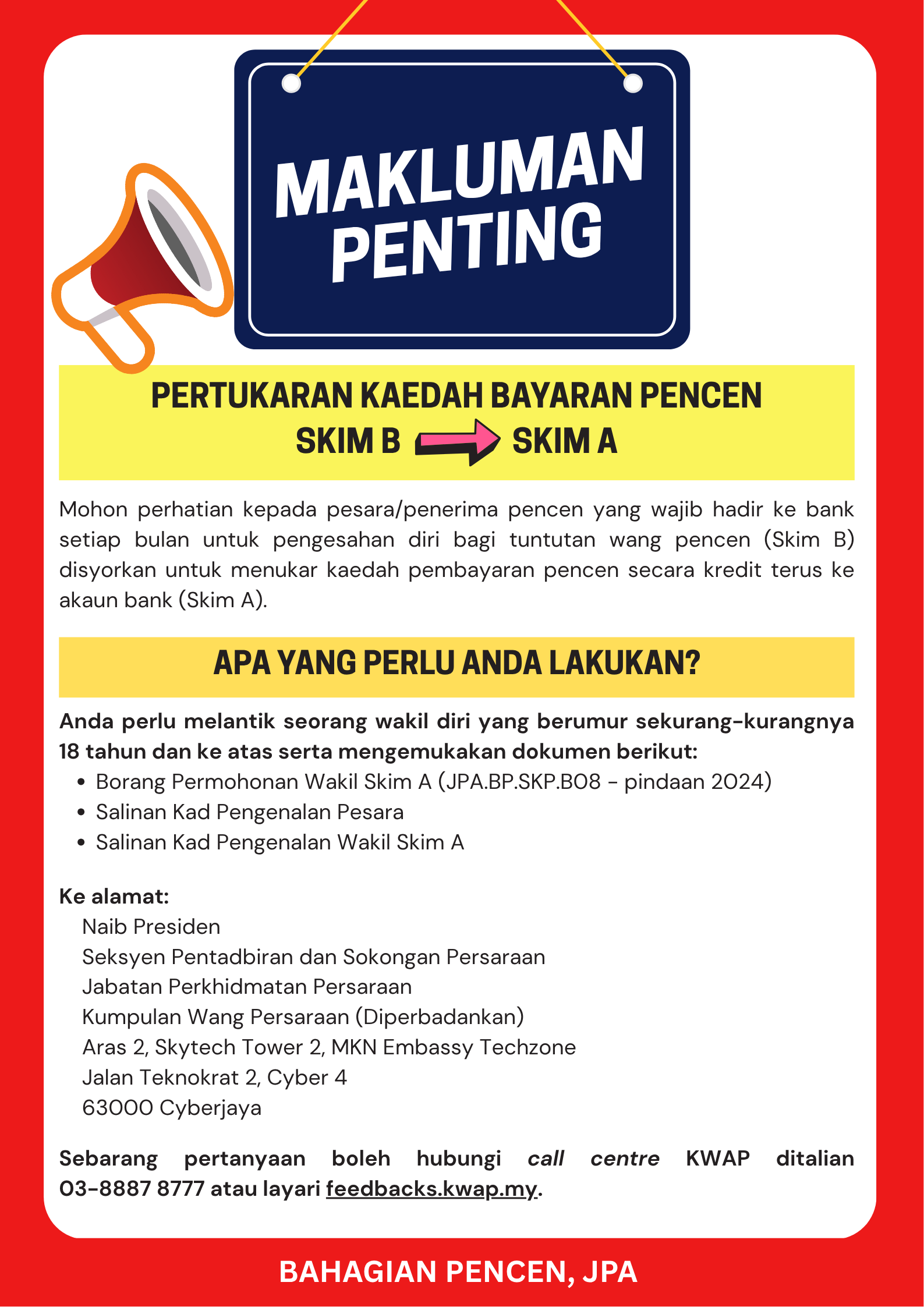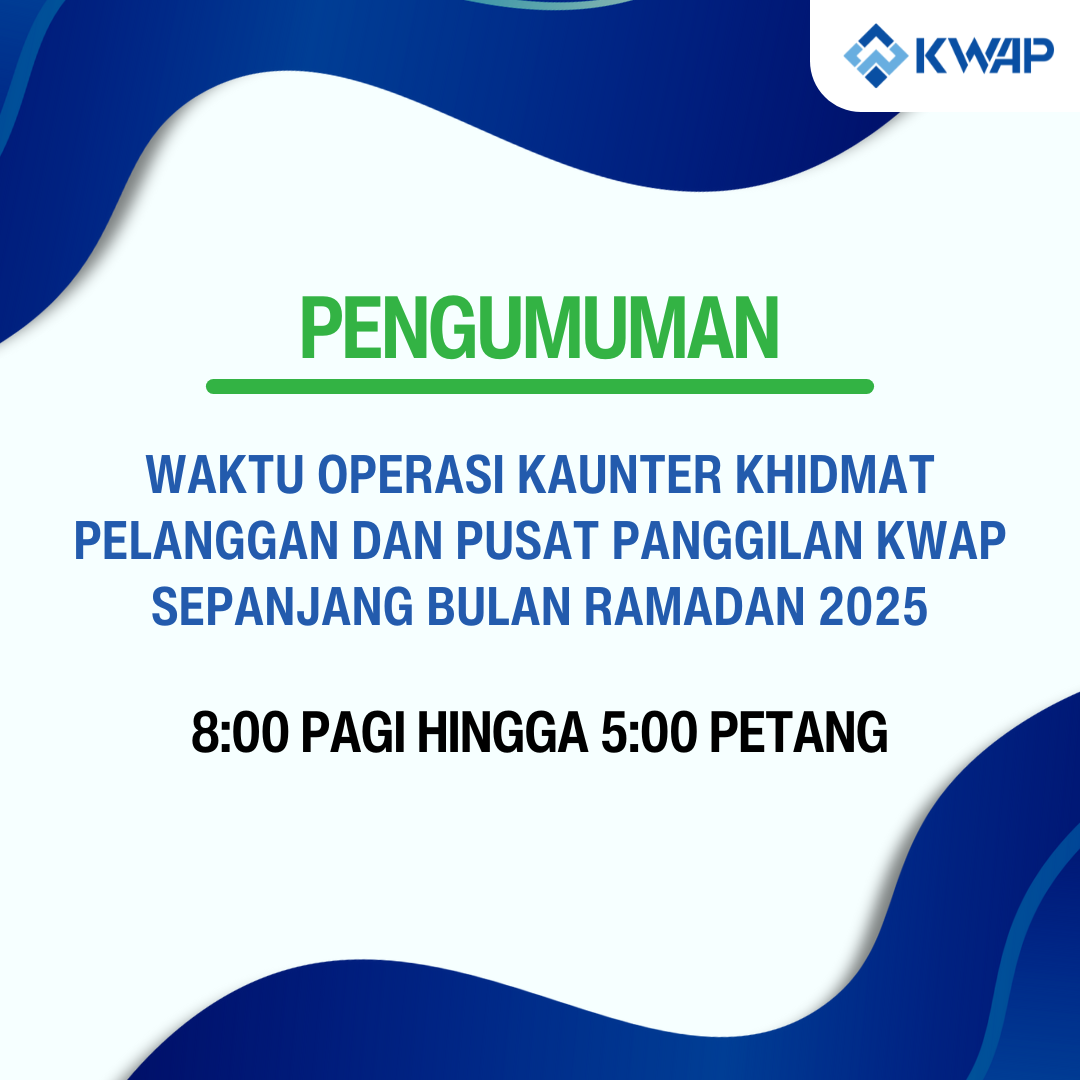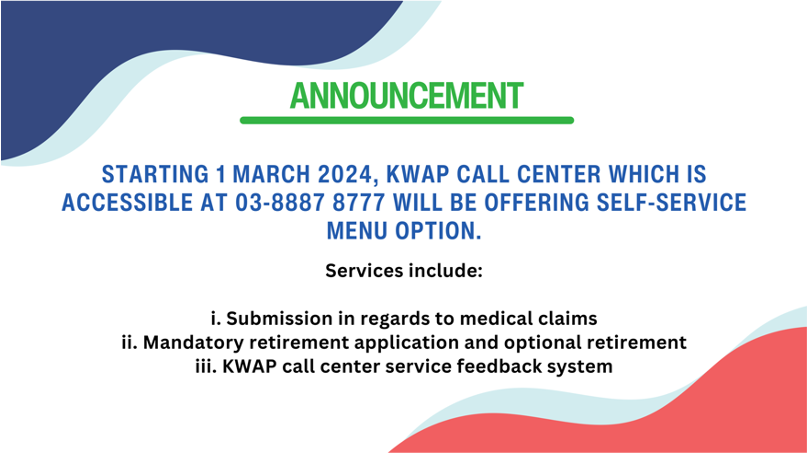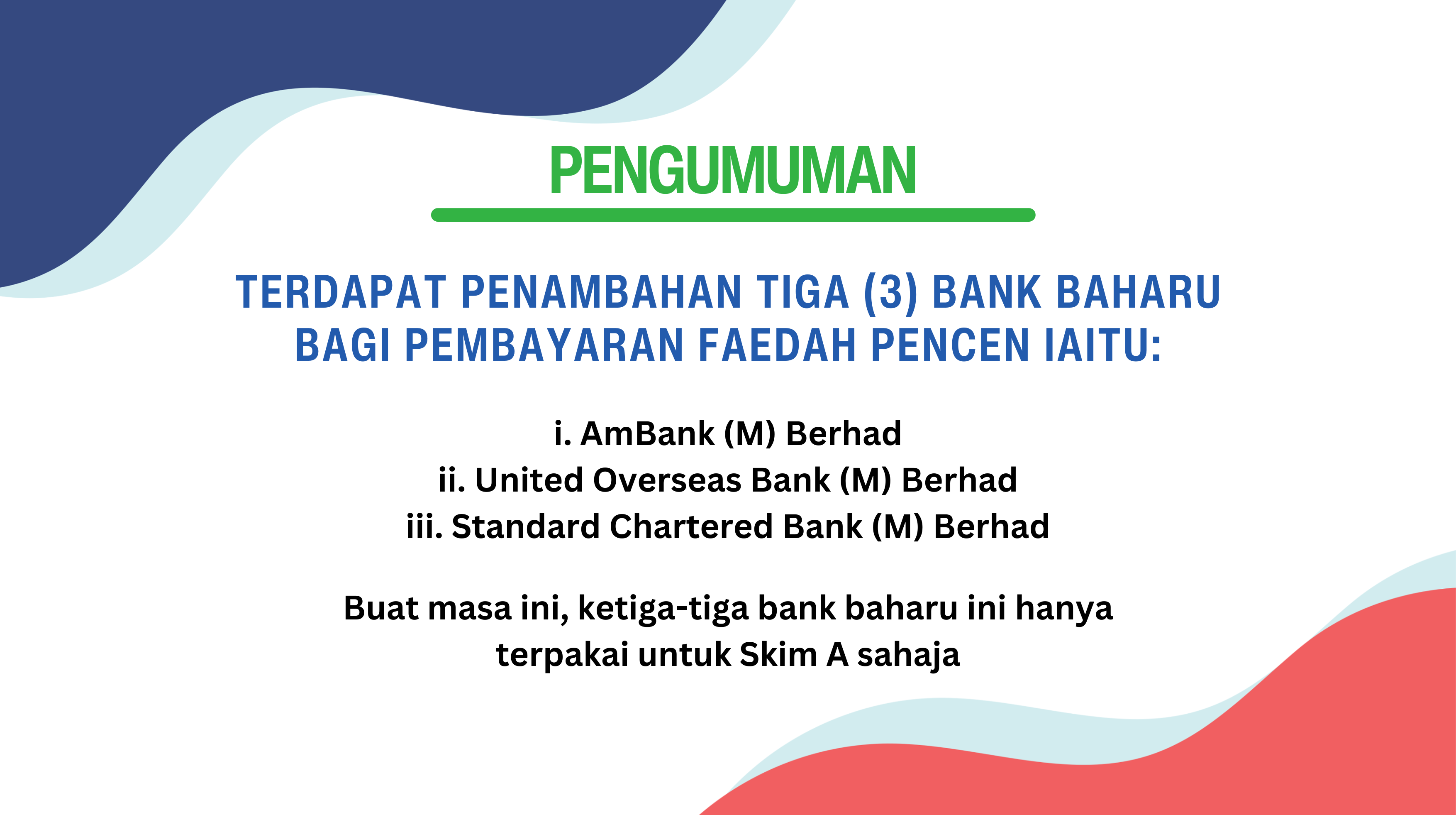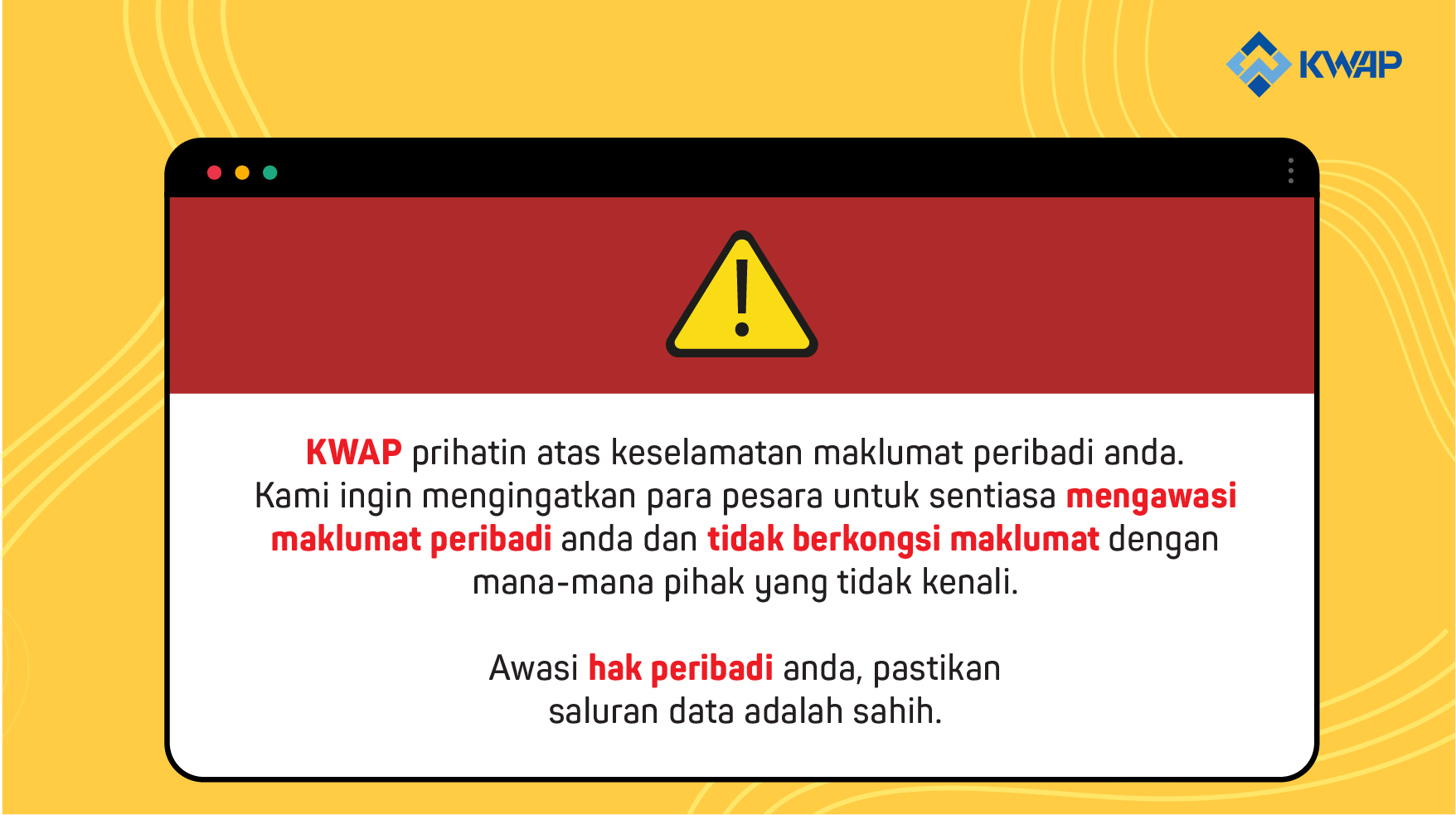Statement of Governance

THE BOARD
Throughout the years, the KWAP Board has ensured that KWAP’s business and affairs are in strict compliance with the principles of good corporate governance, such as integrity, transparency and professionalism, which are among the key components contributing to the organisation’s continued progress and success in achieving stakeholders’ objectives.
To ensure the highest standards of integrity and business ethics, professionalism is embedded where applicable. Although KWAP is not required to abide by the Malaysian Code on Corporate Governance, the Board has adopted best practices on governance to ensure that the highest standards of corporate governance are practised to protect and enhance stakeholders’ value.
KWAP is led and managed by experienced and skilled Board members with varied backgrounds from the Government, private sector, Bank Negara Malaysia and contributors’ representatives, which is important for the overall strategic achievements of KWAP.
As specified under Section 6 of the Retirement Fund Act 2007 (Act 662), the Board shall consist of the following members, who shall be appointed by the Minister of Finance:
- a Chairman, who shall be the Secretary General of Treasury, the Ministry of Finance;
- a representative from Bank Negara Malaysia;
- a representative from the Ministry of Finance;
- the Chief Executive Officer, who shall be an ex-officio member;
- three (3) representatives of the Government of Malaysia; and
- three (3) other persons from the private sector with experience and expertise in business or finance;
- a representative of the contributories to the Retirement Fund other than the representative of the Government of Malaysia.
As part of best practices, the roles of the Chairman and the Chief Executive Officer (CEO) should be separated. The Chairman of KWAP is primarily responsible for ensuring Board effectiveness and conduct while the CEO of KWAP, as duly appointed by the Board with the approval of the Minister of Finance, is responsible for the overall operations of the business and the implementation of policies and decisions made by the Board, as well as the investment decisions made by the Investment Panel in accordance with the Act. The CEO is assisted by the Management in managing the day-to-day administration of KWAP and the administrative control of its employees.
The Board was established to administer and manage KWAP in such a manner as will further enhance the respective interests of the contributors and the stakeholders. The function of the Board is to formulate administration and management policies and procedures and to ensure that KWAP achieves its objectives with success and excellence.
The Board assumes a number of specific tasks, such as overseeing the proper conduct of operations, identifying principal risk areas and ensuring the proper implementation of appropriate systems to manage these risks, as well as reviewing the adequacy and integrity of the internal control systems as specified in the Act and the Board Charter.
THE INVESTMENT PANEL
The Retirement Fund Act 2007 (Act 662) also requires the establishment of an Investment Panel to provide strategic directions on investment matters. It determines and approves investment policy and guidelines, policies on risk management, asset allocation and strategic directions on investment.
The Investment Panel shall consist of the following members who shall be appointed by the Minister of Finance:
- a Chairman, who shall be the Chairman of the Board or such other person as may be appointed by the Minister of Finance (Section 7(2)(a) of the Act);
- a representative from the Ministry of Finance;
- the Chief Executive Officer of KWAP, who shall be the Secretary; and
- four (4) other persons from the private sector with experience and expertise in business, investment, banking or finance.
The Investment Panel is generally responsible for approving, inter alia, KWAP’s strategic direction on investment matters, investment policy and guidelines, asset allocation and investment proposals. In executing its functions, the Investment Panel shall report its activities to the Board and shall act in accordance with the general policy that may be issued by the Board and subsequently approved by the Minister of Finance.
BOARD COMMITTEES
In order to assist the Board in discharging its duties, the Board has established various committees to oversee specific matters relating to the operations of KWAP, namely the Board Audit Committee, Board Integrity and Risk Committee, Board Remuneration and Nomination Committee, and Board Procurement Committee. The Board Committees are granted the authorities to act on the Board’s behalf in accordance with their respective Terms of Reference which are provided in the Board Charter.
BOARD AUDIT COMMITTEE
The Board Audit Committee (BAC) was established to ensure establishment and enforcement of internal controls and systems at KWAP.
Currently, the BAC comprises the following five (5) Board members who were appointed by the Board:
The following are the duties and responsibilities of BAC:
- Financial Statements
- To review and recommend the financial regulations, accounting regulations, policies and practice adopted by KWAP;
- To review the annual Consolidated Financial Statements of the Group and KWAP with Management and the external auditors prior to recommending them to the Board for approval; and
- To review changes to the Financial Procedures.
- Internal Audit
- To review and discuss the nature and scope of internal and external audit plans and ensure co-ordination of approach among the internal auditor, the external auditor and/or other external assurance and consulting service provider;
- To review the audit reports performed on KWAP and its subsidiaries by the internal auditor, the external auditor and/or the external assurance and consulting service provider and ensure that management is taking necessary corrective actions in a timely manner to address control weaknesses, non-compliance with laws, regulatory requirements, internal policies and internal procedures;
- To approve and recommend the appointment, transfer, renewal and removal of the Head of Internal Audit Department to BRNC before Board’s final approval;
- To review and approve the proposed Internal Audit Departmental Scorecard for annual performance evaluation;
- To appraise and approve the performance of the Head of Internal Audit Department;
- To approve and recommend the remuneration of Head of Internal Audit Department to BRNC for deliberation before Board’s final approval;
- To approve the internal audit charter and the risk-based internal audit plan;
- To ensure that internal audit function has appropriate standing in KWAP and has the necessary authority, resources and competency to carry out its work;
- To review the effectiveness of the internal audit function, by receiving periodic updates on the internal audit activity’s performance relative to its plan, including compliance with The Institute of Internal Auditors’ International Professional Practices Framework (IPPF) for Internal Auditing; and
- To review and approve any key changes to audit methodology and processes.
- Internal Control
- To provide independent assessment of the adequacy and reliability of the risk management processes and system of internal controls and compliance with risk policies, laws, internal guidelines, and regulatory requirements.
- Other Responsibilities
- To discuss with the internal auditor, external auditor and/or other external assurance and consulting service provider on a regular basis any matter which they wish to discuss (in the absence of management where necessary);
- To consider major findings of internal investigations and management’s response;
- To direct and provide oversight on any special investigations to be carried out by the internal auditor or any independent party, and review the outcomes of investigations;
- To consider any related party transactions that may arise within KWAP; and
- To consider other issues as defined by the Board.
KWAP’s external auditor is the Auditor General of Malaysia as per the Statutory Bodies (Accounts and Annual Reports) Act 1980 [Act 240].
BOARD INTEGRITY COMMITTEE
The Board Integrity Committee (BIC) was established to assist the Board in discharging its functions to oversee the implementation of integrity and governance functions in KWAP, monitor related issues, and ensure adequate measures for integrity and good governance within the organisation.
Currently,the BIC comprises the following four (4) Board members who were appointed by the Board:
The following are the duties and responsibilities of BIC:
- Review and approve frameworks, strategies, plans, policies, procedures and other matters related to integrity and governance functions and, where applicable, recommend to the Board for approval;
- Monitor the overall issues of bribery, fraud, corruption and unethical conducts within the organisation;
- Ensure establishment of adequate measures for corruption prevention, integrity and good governance in KWAP;
- Oversee the implementation of integrity and governance functions in KWAP for achievement of their intended objectives; and
- Consider other issues as defined by the Board.
BOARD RISK AND COMPLIANCE COMMITTEE
The Board Risk and Compliance Committee (BRCC) was established to assist the Board in discharging its functions to formulate and carry out the risk management strategies, determine risk appetite, approve risk management framework, policies and limits, review risk exposures and oversee the overall risk management.
Currently, the BRCC comprises the following five (5) Board members who were appointed by the Board:
The following are the duties and responsibilities of BRCC:
- Determine risk appetite and recommend to Board for approval;
- Review risk management and compliance frameworks and policies and recommend to the Board for approval;
- Review risk management and compliance guidelines;
- Approve risk limits, and escalate to Board if necessary;
- Ensure an effective compliance process (for external and internal controls) by recommending controls for risks inherent in products, activities, processes and systems;
- Approve Business Continuity Management (BCM) Policy;
- Ensure adequate infrastructure, resources and systems are in place to identify, measure, monitor and control risks for effective risk management within KWAP;
- Review KWAP’s risk exposures and mitigating controls; and
- Consider other issues as defined by the Board.
BOARD NOMINATION AND REMUNERATION COMMITTEE
The Board Nomination and Remuneration Committee (BNRC) was established to assist the Board in discharging its functions with its primary responsibility to establish the relevant policy framework in determining the appointment and remuneration of the management and staff of KWAP and recommend to the Board the performance related remuneration of the respective staff.
Currently, the BNRC comprises the following five (5) Board members who were appointed by the Board:
The following are among the duties and responsibilities of BNRC:
- Pertaining to appointment of its human resource are as follows:
- to recommend the minimum requirements on the skills, experience, qualifications and other core competencies of KWAP’s employees;
- to recommend and review terms and conditions of employment and service of KWAP’s employees;
- to recommend and review code of conduct and discipline of KWAP’s employees;
- to recommend the mechanisms for the formal assessment on the effectiveness of KWAP’s employees;
- to recommend the promotion of KWAP’s employees;
- to review and recommend to the Board the appointment, upgrading and promotion of Senior Management of KWAP Group;
- to consider the CEO and Senior Management’s succession planning;
- to recommend the removal of the CEO and Senior Management if they are found to be ineffective, errant and negligent in discharging their duties;
- to determine remuneration and terms of employment of the CEO;
- to determine performance contracts and targets and the structure of the rewards for the CEO and to assess the CEO’s performance against these targets;
- to recommend to the Board the remuneration framework of the CEO and the Senior Management. The BNRC may obtain independent professional advice and any other information necessary in determining the framework;
- to recommend to the Board any proposals of the CEO and Senior Management (if any) remuneration and benefit including service contracts and compensation payment for approval;
- to establish a formal and transparent procedure for developing policy on the CEO and Senior Management (if any) remuneration and for fixing their individual remuneration packages;
- to review all benefits and entitlements of the CEO and Senior Management (if any) of KWAP Group;
- to consider compensation commitments/ severance payments for CEO in the event of early termination of the employment/service contracts;
- To recommend the nomination and appointment for any positions reports to Chief Executive Officer; and
- To consider any other issues as defined by the Board.
- Its other functions include the following:
- To recommend to the Board the framework or the broad policy for the remuneration of the CEO and other senior management of KWAP as the BNRC’s considerations are designated to consider;
- To recommend to the Board any performance related pay schemes for KWAP;
- To recommend to the Board the policy and scope of service agreements of the executive, termination payments and compensation;
- To oversee any major changes concerning the employees of KWAP;
- To consider and examine relevant matters as the BNRC considers appropriate; and
- To review and recommend to the Board the framework, or broad policy and proposal of remuneration package such as allowances, benefits, gratuity honorarium, and compensation for members of the Investment Panel and Board. The policy or framework in connection thereto shall be documented and any changes thereto should be subject to the approval of the Board and ultimately the Minister of Finance.
BOARD PROCUREMENT COMMITTEE
The Board Procurement Committee (BPC) was established to assist the Board in discharging its functions with regards to the evaluation of procurement proposals.
Currently,the BPC comprises the following five (5) Board members who were appointed by the Board:
- To review the tenderer’s registration with the MOF and Contractor Services Centre, tender invitation advertisement, tender specifications, tender documents (if necessary), tender schedule prepared by the Tender Opening Committee, technical and financial evaluation reports etc.;
- To ensure that the procurement process complies with all applicable procurement ethics, policies and procedures;
- To review the tenderer’s technical and financial capabilities. During the tender evaluation, the technical proposal would be opened and evaluated first, followed by the financial proposal;
- To consider and recommend awards which are beneficial to KWAP, taking into consideration factors such as pricing, utilisation of products/goods and/or services, delivery or completion period, maintenance cost as well as other relevant factors;
- To decide on a re-tender process or to recommend any other procurement methods, if the BPC finds that the procurement procedures are not in accordance with the regulations or suspects that there are irregularities in the tender process;
- To consider and accept the tender, provided that a decision has been made by the Committee by at least a simple majority and is within the approved limit;
- To consider and accept any quotations acknowledged by the Quotations Committee that exceeds the quotations limit; and
- To consider other procurement issues as defined by the Board.

